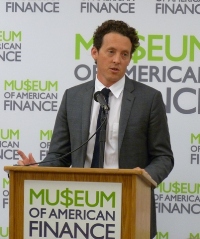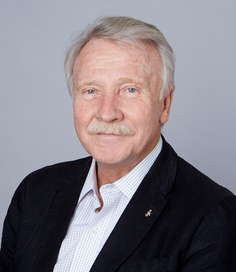Urban Governance, Capacity, and Institutional Development
Policy Dialogues Venue: Room 1 - Cine Alfredo Pareja Casa De La Cultura- London School Of Economics (LSE); United Cities And Local Governments (UCLG).
- Dieudonné Bonanet Minister Ministry Of Planning And Habitat Burkina Faso

- Emilia Sáiz Deputy Secretary General United Cities And Local Governments Spain

- Ian Klaus Senior Adviser For Global Cities US Department Of State United States of America

- IImar Reepalu Councilor Of Malmö CEMR Spokesperson On Urban Policies SALAR CEMR Sweden

- Joanna Drake Deputy Director-General EUROPEAN COMMISSION – DG ENV Malta

- Mercè Conesa President Barcelona Region Council Spain

- Monica Fein Mayor Of Rosario Local Government Argentina

- Parks Tau President South African Local Government Association (SALGA) South Africa

- Philipp Rode Executive Director LSE Cities London School Of Economics And Political Science Germany

- Sandra Vermuyten Head Of Campaigns Public Services International Belgium

Urban Governance and the New Urban Agenda
This three hour session consists of two panels which will discuss the implications of the New Urban Agenda for different aspects of urban governance. The session acts as an inaugural forum interpreting the high-level governance ambitions of the New Urban Agenda for different contexts, spheres of governments, private and third sector organizations and actors.
Panel 1: Urban Governance and the New Urban Agenda: Implications for Governments
This panel will focus on the principal ambition of the New Urban Agenda affecting the formal structures and operations of government. Panelists will discuss wider implications of multilevel governance, metropolitan governance and the subsidiarity principle. Unpacking the New Urban Agenda’s ambition for decentralization and the strengthening of regional and local governments, it identifies priority actions that national governments may need to take and city-level institutional responses. In addition, this panel will inquire about the general ambition for holistic and integrated governance, cutting across territories, policy sectors, spatial and temporal scales. Panelists include political and administrative leaders from national, regional and city governments.
Panel 2: Urban Governance and the New Urban Agenda: Implications for Decision Making
The second panel will extend the debate on implications of the New Urban Agenda beyond the sphere of governments and engages with the roles and relationships between public, private and civil society. It will centrally address questions of newer forms of network governance to support a participatory approach and how deliberation, decision making and delivery can more effectively involve multiple actors and stakeholders. The debate focuses on central actions emerging from the New Urban Agenda which are linked to participation, representation, partnerships, capacity building and social learning. Panelists include representatives from city governments, NGOs and the private sector.
Guiding Questions
· What are concrete actions that may be taken in your city/country over the next 5 to 10 years which are aligned with or respond to some of the urban governance improvements included in the New Urban Agenda?
· Which urban governance demands of the New Urban Agenda are most difficult to meet?
· What are the main opportunities/barriers for implementing the urban governance improvements proposed by the New Urban Agenda?
· What are the main opportunities/barriers for greater decentralisation and the strengthening of local and regional governments, including the financial dimension?
· What are some of the priority actions that national governments will need to implement, in order to strengthen intergovernmental collaboration between central and local governments while supporting the New Urban Agenda and creating an effective multilevel governance framework?
· What are some of the main challenges related to better coordinate national urban, territorial and sectoral policies and strengthen integrated governance? Are there particular policy sectors that would benefit most from greater integration?
· What are the opportunities and limitations of participatory governance and to what extent can and should public, private and third sector organisations contribute to the New Urban Agenda?
· How can deliberation, decision-making and delivery be structured to more effectively involve multiple actors and stakeholders at all levels?
· What is the role of capacity building in supporting the greater participation of a diverse range of non-government actors in the urban governance process?
